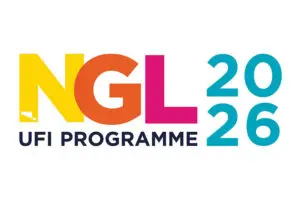Cvent’s report found that a large majority of organisers are planning more events in 2025, with 81 per cent saying their event volume will go up. This is a significant rise compared to 2024, when only 68 per cent of organisers expected to deliver more events.
In-person events are the most likely to increase in 2025, with 57 per cent of organisers planning to hold more face-to-face events.
Webinars and virtual events are expected to see the next biggest increases, with 56 per cent of planners intending to host more webinars and 54 per cent intending to host more virtual events.
Meanwhile, hybrid events have fallen out of favour somewhat with only 45 per cent of planners intending to increase their volume of hybrid events.
For their research, Cvent polled 150 event planners in Australia and New Zealand – mostly in the corporate space, micenet assumes, given all worked at companies with $100 million or more in revenue.
In terms of challenges, Cvent’s survey found generating revenue from events was the top challenge, followed by making events more sustainable, engaging attendees and securing sponsorship.
Cvent’s research also found 75 per cent of event planners are using artificial inteliigence in some way for their events, most commonly for event reporting, with event content close behind as the second most common area where AI is used during the planning process.
Most event planners – 77 per cent – also see their event spend rising this year while 40 per cent see event spending as an essential priority, with a large majority of the rest seeing it as a high priority.
Where the additional spend is going is interesting, with it closely split between essential costs, like rising travel, accommodation and venue costs, and event growth costs, including investments to enhance event scale and experience.
At EventsAIR, budget constraints were cited as the top challenge amongst the 370 event organisers surveyed around the world as part of their research.
Budgets were cited amongst the top three challenges by 63.5 per cent of respondents, followed by attendee engagement at 42.7 per cent while event marketing was some way back at 25.7 per cent as the third largest challenge.
Like Cvent, EventsAir’s survey found in-person events were the top preference, however hybrid events slightly outranked virtual events in terms of importance to event organisers in EventsAir’s research. On demand content was a surprisingly low priority, with less than 38 per cent of those surveyed saying it was moderately or very important.
In the EventsAir research, content quality was seen as the most important factor that can make or break an event, with just shy of 80 per cent of organisers identifying it as key for event success. Event logistics was some way back as the second most commonly cited success factor with 53.1 per cent of organisers selecting it, while technology came in third, nominated by 50.6 per cent of organisers. Networking came in fourth with just under half of event managers identifying it as a success factor. In Cvent’s research, networking was also the least cited reason for attending a B2B conference.
EventsAir’s research also identified how much organisers are spending on event technology. The most commonly selected range was US$10,000-$30,000 – indicated by 36 per cent of organisers, although a significant portion are spending more than that, with 18.2 per cent spending US$30,000-$50,000 and 25.2 per cent spending over US$50,000.
The largest group amongst EventsAir’s 370 pax survey cohort came from PCOs and event agencies – 41.5 per cent – while associations made up 21.6 per cent of respondents and corporates 11.2 per cent. A touch under half of respondents were based in APAC, while a further 31.5 per cent came from Europe, the Middle East and Africa.
Similar to Cvent, EventsAir identified AI and sustainability as trends for 2025.




















